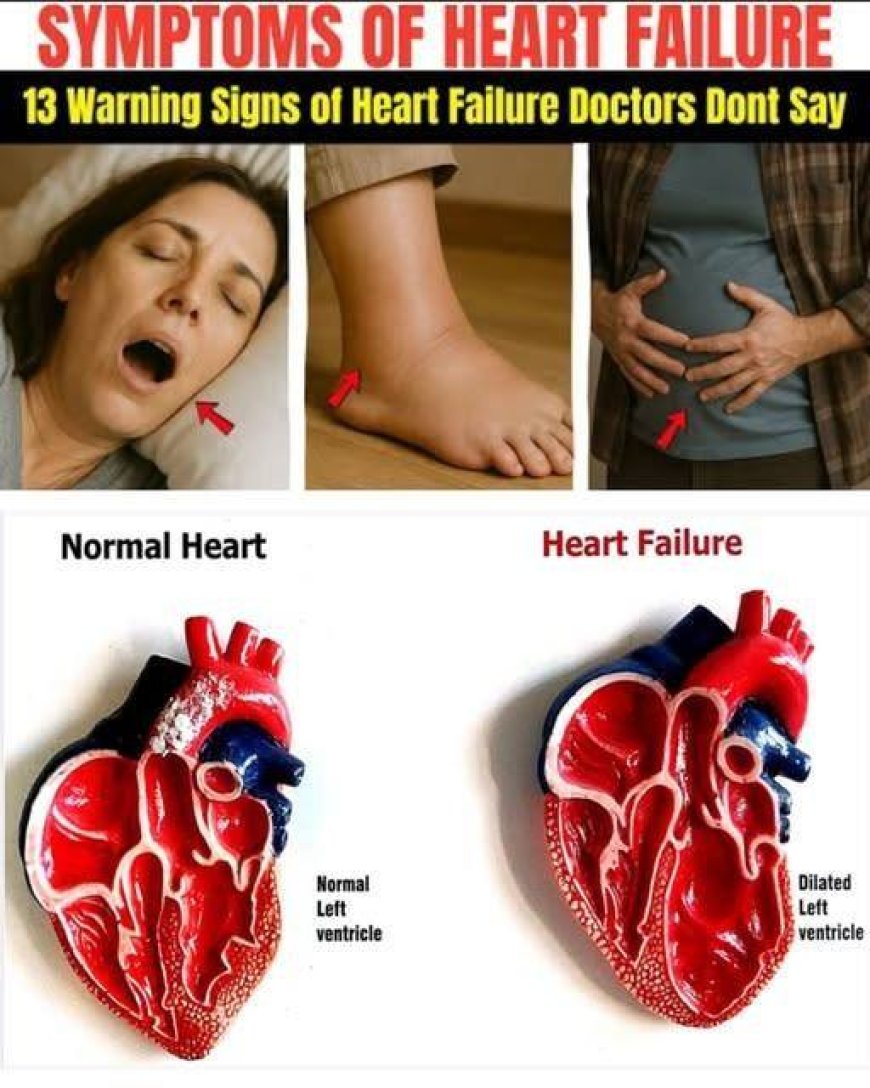13 Early Signs of Heart Failure (You Ignore Daily) | Symptoms of Heart Failure
Heart failure is one of the most misunderstood yet serious health conditions affecting millions of people worldwide. Despite its name, it doesn’t mean the heart has completely stopped working — rather, it signals that the heart muscle has become too weak or stiff to pump blood efficiently. This reduced function can lead to a gradual buildup of fluid in the lungs and body, making even simple daily tasks feel exhausting.
1.
13 Early Signs of Heart Failure (You Ignore Daily) | Symptoms of Heart Failure
Heart failure is a chronic condition that develops when the heart muscle is unable to pump blood efficiently enough to meet the body’s needs. It doesn’t mean that the heart has stopped, but it does indicate that the heart is weakened or under strain.
Unfortunately, many people ignore or dismiss the early warning signs, mistaking them for simple fatigue or aging. Recognizing these symptoms early can make a big difference in treatment and quality of life.
Here are 13 early signs of heart failure you should never ignore:
1. Shortness of Breath (Dyspnea)
Even with mild exertion or while lying down, you may feel like you can’t catch your breath. This happens because fluid builds up in the lungs.
2. Persistent Fatigue and Weakness
Feeling unusually tired or drained during daily activities can signal the heart is struggling to deliver enough oxygen.
3. Swelling in Ankles, Legs, or Feet (Edema)
Fluid retention is one of the most common symptoms. Shoes may feel tight or leave marks on your skin.
4. Rapid or Irregular Heartbeat
A racing or fluttering heart could indicate the heart is compensating for its weakened ability to pump blood.
5. Persistent Cough or Wheezing
Often accompanied by white or pink blood-tinged mucus, this can occur due to fluid backing up into the lungs.
6. Increased Need to Urinate at Night
Frequent nighttime urination (nocturia) is
another common symptom of heart failure.
7. Swelling in the Abdomen (Ascites)
Bloating, discomfort, or sudden weight gain may occur when fluid builds up in the abdominal cavity.
8. Sudden Weight Gain
A quick weight gain of 2–3 pounds (1–1.5 kg) in a day or more than 5 pounds in a week can mean fluid retention.
9. Lack of Appetite and NauseaPoor circulation and digestive system congestion can reduce appetite and cause nausea.
10. Difficulty Concentrating or Confusion
T.ap the p.hoto to v.iew the full r.ecipe.


























